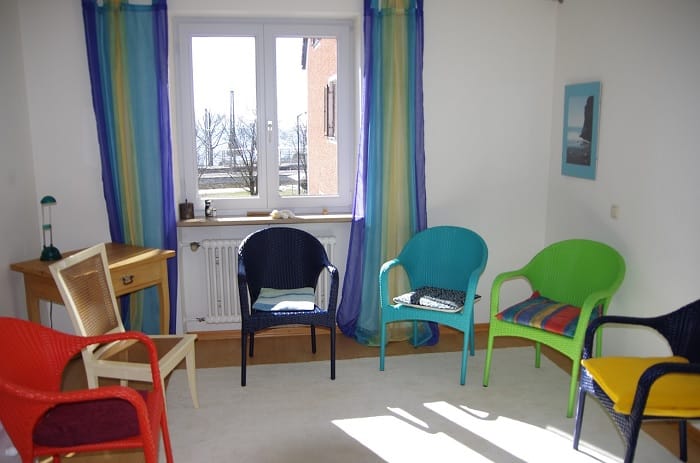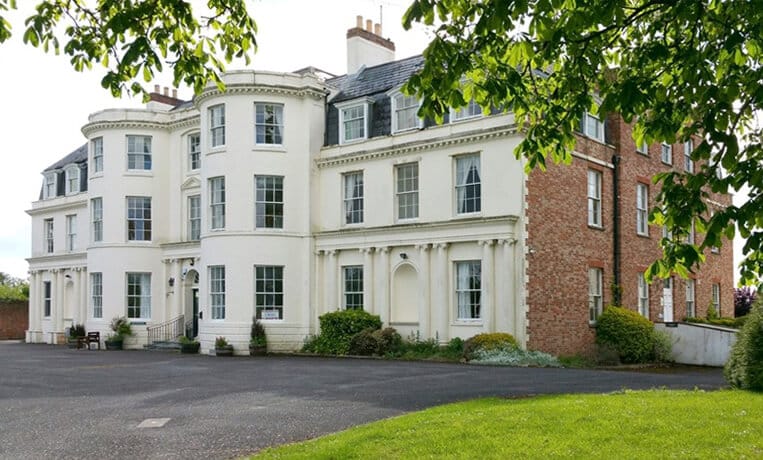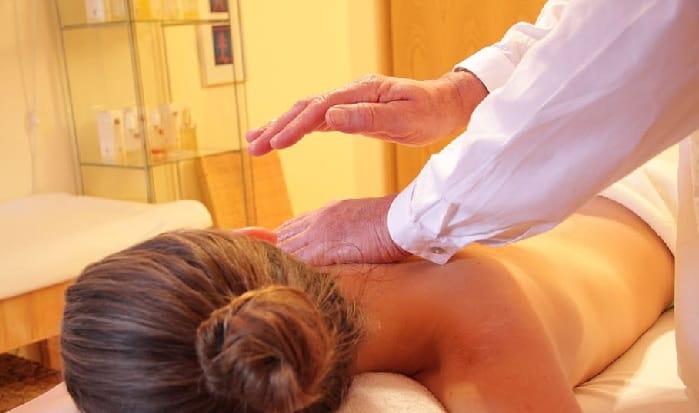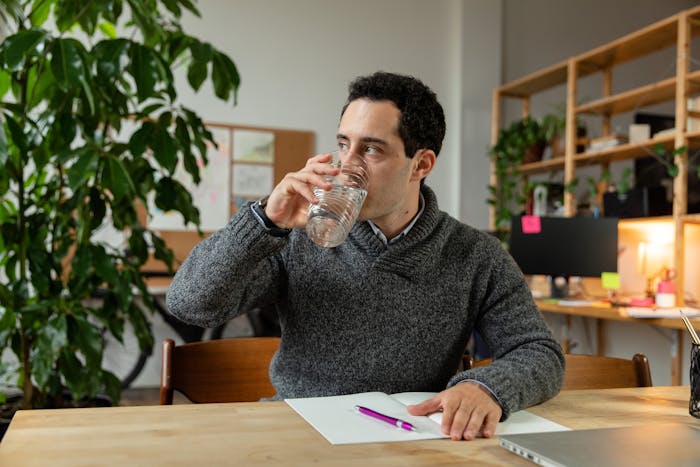The city of Plymouth is sadly no stranger to drug and alcohol abuse, [1] one that requires an effective rehab treatment programme.
Rehab 4 Addiction offers drug and alcohol detoxification and rehabilitation services revolving around person-centred care in the city of Plymouth and near Plymouth.
Our comprehensive database of service providers provides a thorough rehab guide Plymouth to help you find the support you need to beat addiciton, no matter who you are or what your means may be.
Many of the services we can link you with are provided on an inpatient basis, meaning you live within a Plymouth rehabilitation centre whilst you receive medical assistance throughout your stay.
During your time at a Plymouth alcohol & drug rehabilitation centre, you receive expert addiction rehab therapy sessions led by a trained counsellor or psychiatrist.
You also receive assistance from a range of medically qualified professionals who ensure your medically assisted detox phase takes place in a safe and caring environment, whether that’s a residential rehab or a specialist alcohol and drug detox clinic.
This doesn’t just include substance abuse or alcoholism we also provide psychiatric treatment for behavioural addictions such as gambling addiction, shopping addiction and love/sex addiction, to name a few.
Rehab 4 Addiction in Plymouth
Telephone: 0175 252 6519
Business hours: Open 24 Hours/7 days a week
Services in Plymouth: Addiction Treatment, Alcohol Detoxification, Alcohol Rehabilitation, Drug Rehabilitation, Residential Rehab for Addiction, Alcohol Home Deto

Many of you may have attempted to rid your life of drugs and alcohol through sheer willpower.
You may have attended an Alcoholics Anonymous [2] or Narcotics Anonymous [3] meeting in Plymouth and got involved in various hobbies in order to distract you from drug and alcohol use.
However, it’s equally likely that you’ve continued to suffer from drug or alcohol relapses despite your efforts to achieve your recovery goals.
If you relate to the above, it’s likely you will benefit from an expert drug and alcohol addiction treatment programme in Plymouth or near Plymouth.
Why? Because when you attend a drug or alcohol rehab programme in Plymouth, you will receive proven treatments that are known to reverse the fortunes of even the most chronic of drug or alcohol users.
How? Because our partner rehabilitation clinics in Plymouth insist on only offering proven addiction rehab therapy techniques that have evolved over the last decade.
These techniques include cognitive behavioural therapy, psychotherapy and a plethora of holistic therapies alongside many others.
For more information about alcohol and drug rehabs in Plymouth, call our team on 0800 140 4690

Deciding to attend drug and alcohol rehab in Plymouth can be unnerving.
Because individuals often underestimate the severity of their drug or alcohol addiction, they may not realise that now is the time to begin a rehab programme.
However, many individuals need the help of drug & alcohol rehabilitation clinics in Plymouth or near Plymouth.
These include:
To indicate substance dependence, a person would have to demonstrate three or more of the below criteria in 12 months:
If you’re still unsure if a rehab programme in Plymouth is right for you, our friendly and helpful staff at Rehab 4 Addiction can answer any questions you may have.
Think you might need to attend alcohol and drug rehabs in Plymouth? Call our team on 0800 140 4690

Completing our straightforward psychiatric assessment is the first step towards the admissions process for rehab in Plymouth.
This assessment allows us to find you the most suitable alcohol and drug rehab & treatment in Plymouth or near Plymouth based on the type and severity of your drug or alcohol addiction.
Once you’re happy to accept the referral we’ve put in place for you, you’ll be able to visit that drug and alcohol rehab in Plymouth and go through a more in-depth psychiatric assessment to determine your specific rehab programme needs.
The clinician needs to ask further questions not to embarrass you, but to ensure they provide the most appropriate drug and alcohol treatment whilst at your chosen treatment centre.
During these assessments, alcohol and drug addiction treatment professionals can use a number of tools.
These can include:
A valuable tool for recognising the type and intensity of the addiction treatments needed for drug or alcohol addiction recovery is the six dimensions of the ASAM Criteria. [5]
This criterion allows for a structured, multidimensional psychiatric assessment focusing on holistic, biopsychosocial, physical health, alcohol & drug addiction treatment and mental health services.
Another essential tool in the rehab admissions process in Plymouth includes the Diagnostic and Statistical Manual of Mental Disorders, Fifth Edition (DSM-5). [6]
Using this complex device allows for the severity of substance abuse disorders to be broken down into three levels, and ensure you go down the right drug or alcohol treatment path.
Addiction treatment professionals determine the severity of a substance use disorder by how many of the 11 symptoms an individual demonstrates. For example, two or three symptoms would indicate a mild substance use disorder (level 1).
Four or five symptoms would indicate a moderate substance use disorder (level 2), and six or more symptoms would indicate a severe substance use disorder (level 3), classed as an addiction.
For more information about categorising and measuring addiction at drug and alcohol rehab in Plymouth, call our team on 0800 140 4690

Alcohol and drug addiction treatment professionals can decide if alcohol consumption is severe enough to warrant a stay at an alcohol rehab clinic through the Alcohol Use Disorders Identification Test (AUDIT). [7]
Consisting of 10 comprehensive questions used to screen for alcohol harm, it’s easy to see why AUDIT has been used extensively in health and social settings in the UK.
Patients are asked to answer a set of questions with a score of zero to four. Questions one to three are used to determine the level of alcohol intake. Questions four to six assess the level of alcohol dependency.
Questions seven to ten focus on discovering the extent of alcohol damage on an individual’s life.
For example, a score of 13 points or more would be a clear indicator of alcohol dependency, whereas a score of 8 or more is still a cause for concern.
Another way of screening the severity of an addiction is via the CAGE questionnaire.
Think you need the help of an alcohol rehab in Plymouth? Call our team today on 0800 140 4690

Many people, especially those struggling with substance use disorder themselves, aren’t aware of what classifies a substance use disorder (SUD).
However, as mentioned above, classifying substance abuse is possible through the Diagnostic and Statistical Manual of Mental Disorders (DSM).
The most recent update to DMS (DSM-5) covers the criteria for substance abuse disorders and other mental health disorders.
Substance use disorders are classified as mild, moderate, or severe and diagnosed based on how many relevant diagnostic criteria an individual meets.
There are 11 DSM-5 criteria, and when patients meet two to three of the requirements, they are deemed to have a mild substance use disorder.
Meeting four to five of the criteria would be considered as having a moderate SUD.
Whereas meeting six or more criteria would indicate that the individual has a severe SUD. This severe SUD would be classified as an addiction that needs urgent help.
If these criteria have made you wonder about your own need for drug and alcohol rehab Plymouth, give our team a call on 0800 140 4690

Intervention refers to the action or process of intervening or improving a medical disorder.
Therefore, means intervening to help a loved person understand that they have an addiction that they need help to overcome.
As an organised attempt to confront a friend or family member about the impact and reality of their alcohol, substance, or behavioural addiction.
Participants typically come in the form of friends and family members. However, enlisting an intervention specialist gives you the best outcome.
When participating in an intervention, all groups’ members should be aiming to educate and support the person.
The common goal should always be to provide a well-defined opportunity to create positive change and build a strategy to resolve the addiction.
That’s where the help of an intervention specialist can be vital.
One of the more helpful approaches to intervention includes the CRAFT approach (Community Reinforcement And Family Training).[8]
In contrast to the generic type of intervention, the CRAFT approach allows family members to learn how to help their loved ones achieve sobriety.
Usually, the standard form of intervention simply involves confronting the person to encourage them to attend a rehab programme. No education about addiction is provided.
In contrast, the education that the CRAFT method provides can help those refusing to admit that they have an addiction.
For help holding an intervention in order to convince a loved one to attend drug and alcohol rehab in Plymouth, call us today on 0800 140 4690

The price for drug and alcohol rehab Plymouth and near Plymouth will always vary based on a few mitigating factors. For example, simply choosing one centre over another will cause a fluctuation in price.
In addition, the length of time you stay in your rehab programme and whether you opt for a private or multiple occupancy room will also have an impact.
However, there is a range of price points available in Plymouth to suit any circumstances.
Opting for a 10-day medically-assisted alcohol or drug detoxification in a multi-occupancy room will range from £2,000 to £4,000, whereas a single occupancy room for a medical detox of the same duration will cost £3,000 to £6,000.
If staying at a rehab in Plymouth for 28 days is something you’re considering, you will need to spend between £8,000 to £12,000 for a single occupancy room.
If you’re happy to take a multiple occupancy room, it will cost you about £6,000.
You can also save money by opting for a home detox in Plymouth instead of at an alcohol and drug detoxification clinic, which some do have success with.
However, at the budget price of around £1,500, home detox will not provide all the support you need to learn to say no to temptations.
You will also not be permitted to undergo a home detoxification if you suffer from a severe addiction, as attempting to recover outside of an alcohol and drug detox clinic and without medical supervision could be extremely dangerous.
At Rehab 4 Addiction, we may be able to inform you of the exact prices of the local rehab clinics group in Plymouth before you go ahead with a local drug or alcohol treatment programme.
To get a more specific answer to how much your drug and alcohol rehab in Plymouth will cost you, call us on 0800 140 4690

Although the aim of both a private rehab programme and council-funded rehab treatment in Plymouth is the same; to help you achieve life-long sobriety, the nature of these two centres can differ.
The first difference you’ll notice is cost, with private rehab costing at least between £1,500 to £3,000 per week, depending on the location of the rehab and the type of drug or alcohol treatment chosen.
Although this may sound expensive, the true benefit comes from instant access to a drug and alcohol addiction treatment programme in Plymouth.
In contrast, free, council-funded drug and alcohol treatments often involve long waiting lists. Enrolling in a private rehab in Plymouth ensures you have access to a safe and encouraging environment when you most need it.
Although a private rehab programme may sound expensive, the cost is completely worth it when you consider the vast variety of treatments available based on your particular needs.
For example, you’ll have access to talking therapies like cognitive behavioural therapy, [9] and other addiction counselling treatments that help you retrain your brain to cope with addiction triggers.
Putting your mind and body in the right place for recovery is also possible through a private rehab programme in Plymouth, due to a combined treatment plan focussing on the mind and body.
These essential treatments include access to vital drug and alcohol addiction detox clinics and holistic therapies such as acupuncture, art therapy, music therapy and yoga are offered.
When under the care of private rehab, these therapies are also facilitated by highly trained doctors and therapists.
What’s more, you’ll be able to compile a relapse prevention plan before you leave rehab, often with 12 months of aftercare in Plymouth.
Due to long waiting lists, you may not be able to access a residential treatment centre in Plymouth or near Plymouth through council funding. Despite your needs, you may only have access to outpatient clinics.
In contrast, the residential nature of private rehab enables you to separate yourself from all the bad influences and triggers in your daily life. However, outpatient centres can allow for distractions that endanger your sobriety.
Whilst a publicly-funded rehab programme may not provide the same level of care and treatment, the good news is that it provides a treatment programme that is accessible to all, no matter your circumstances.
Free and NHS-run addiction rehab services in Plymouth [10] include:
Address: Hyde Park House, Mutley, Plymouth, PL4 6LF
Telephone: 01752 434 343
Website: http://www.harbour.org.uk/
Address: Breakwater Works, Breakwater Rd, Plymstock, Plymouth, PL9 7HJ
Telephone: 08457 697 555
Website: http://www.alcoholics-anonymous.org.uk/
For more guidance about choosing between private and public drug and alcohol rehab & treatment programme in Plymouth, call our team on 0800 140 4690

When we talk about rehab we are typically referring to a residential, inpatient treatment centre.
Because you are receiving full-time treatment, in contrast to an outpatient rehab facility, your alcohol or drug addiction treatment programme can be provided in a shorter time frame with no gaps between sessions.
Although the length of time spent at alcohol & drug rehab treatment centres will vary between patients, a rehab treatment programme can be undertaken in as little as seven days.
These seven-day stints offer the most success for those suffering from mild addiction or those who feel they may be at risk of drug or alcohol relapses.
In contrast, anyone who has been suffering from a severe alcohol addiction or substance abuse disorder for a long time should consider the more beneficial 28-day rehab recovery plan.
Staying in a residential rehab facility for 28-days allows you to focus on your recovery for a vital amount of time.
In addition, 28-days gives patients the time needed to go through physical withdrawal, uncover why they have become addicted, and learn to avoid triggers through essential therapies.
However, you’ll often be able to extend your stay at rehab to 90 days if needed. What’s more, drug & alcohol rehabilitation clinics usually offer a 12-month aftercare programme for free.
You may even be introduced to the idea of sober living houses.
To get a personalised estimation of how long your time at drug and alcohol rehab Plymouth will take, call us today on 0800 140 4690

Before you can access the effective therapies that allow you to get to the bottom of your addiction, you will need to physically withdraw from drugs and alcohol.
Unfortunately, withdrawing from drugs and alcohol can be unpleasant and dangerous.
Some of the symptoms include:
And more. For those with a severe addiction, the symptoms can be dangerous, even fatal.
To keep you safe and uncomfortable, the drug and alcohol rehab centres we refer you to offer the highest level of care and treatment to mitigate these dangers.
So, for example, if you suffer from alcohol abuse, you will have the chance to go through safer pharmacological intervention with the help of specialised detox medication, such as Librium.
Receiving the correct dose of benzodiazepine/Chlordiazepoxide (Librium) over ten days is essential in reducing many symptoms of anxiety, panic symptoms, confused thinking and withdrawal seizures often caused by alcohol detox.
Your recovery will take place in a medically supervised alcohol detox clinic or rehab centre to ensure your safety at all times.
A rehab programme will also start with a medically-assisted drug or alcohol detox plan (when necessary), followed by a further three weeks in rehab facilities.
This three-week stay leaves patients with the vital opportunity to battle the emotional causes of addiction.
Fighting these causes of addiction is possible through individual and group therapy, cognitive behavioural therapy, exposure therapy, holistic therapies and other specialised addiction rehab therapy.
Please call our 24-Hour Helpline: 0800 140 4690

Without proper medical care and attention, withdrawing from alcohol is not only unpleasant but potentially dangerous.
When heavy drinkers suddenly stop drinking or reduce their alcohol intake, they often suffer from Alcohol Withdrawal Syndrome (AWS), causing both physical and emotional symptoms.
These symptoms can range from mild fatigue to nausea; increasing to severe hallucinations, seizures, and heart disturbances.
When alcohol withdrawal is not managed correctly, the symptoms of AWS can lead to life-threatening delirium tremens (DT).
Those with severe AWS symptoms need medical care from a residential rehab programme that offers medically managed withdrawal.
Because alcohol withdrawal presents both psychological and physical effects, it needs to be met with a range of appropriate medicines and therapies to manage your symptoms.
Receiving excellent medical care while you go through detox from alcoholism allows you to do this. It keeps you comfortable through the management of your symptoms whilst also managing any complications.

Before recommending an alcohol home detox, our team need to go through a thorough assessment to determine your drinking habits.
For example, drinking below 30 units per day would indicate that you are not exceptionally high risk. A fact that means you may be eligible for an alcohol home detox in Plymouth.
When this is the case, the detox medication Librium is usually sent out to the patient.
Librium is a form of benzodiazepine and is essential in tackling the challenging first wave of alcohol addiction detox because it has a calming and sedative effect on anxiety.
Ensuring that you avoid self-detox at home, where you receive no medical care, is vital in giving you the best chance of a safe recovery.
However, a medically managed home detox means you can be assessed by a psychiatrist, be prescribed anti-withdrawal medicine and monitor your progress daily via telephone, in a similar procedure to recovery at an alcohol detox clinic.
While this alcohol detox plan is cheaper, it is not as safe as receiving full medical supervision in a residential setting.
However, home detox is a brilliant option for those at low risk of complications and with ample support from family and friends.
Please call our 24-Hour Helpline: 0800 140 4690

Cocaine is a dangerous and powerful drug that causes significant physical and psychological damage to your health.
What’s more, cocaine is highly addictive because it creates a range of short-lived but intense pleasurable effects, leading to changes in the brain. [11]
A natural high becomes impossible to maintain, resulting in repeated use, increased tolerance and ultimately a cocaine addiction or cocaine dependence.
If you have been using cocaine for a long time, have a high tolerance and are struggling to overcome your cocaine addiction, you are likely to need the support of an addiction treatment programme for cocaine.
However, because crack cocaine is not a physically addictive drug, detoxing from home won’t result in uncomfortable or dangerous physical withdrawals, unlike alcohol or heroin.
Therefore, you won’t receive any technical cocaine detox in rehab. But finding a rehab programme for cocaine in Plymouth will give you the professional support and treatment programme needed to reverse the effects of cocaine addiction.
In addition, overcoming the adverse side effects of cocaine addiction, such as paranoia, depression, and anxiety means you can live your health with a healthier mind.
Please call our 24-Hour Helpline: 0800 140 4690

Heroin is another dangerous drug that can be difficult to escape from. As a potent opiate, heroin has a severe reputation for affecting whole communities globally.
Achieving sobriety from heroin can be tricky and dangerous as the steps aren’t simple, but essential to living a life free from heroin addiction and any other opioid use disorder.
As a physically addictive drug, life-threatening heroin addictions can be overcome with a suitable drug rehab & treatment programme in Plymouth.
By enrolling in a drug rehab facility, you will go through the essential first stage of heroin detox that helps to treat the dangerous physical heroin withdrawal symptoms.
Because drug and/or alcohol withdrawal symptoms occur mere hours after taking a dose of heroin, causing you to crave more heroin, it’s best to engage with effective heroin treatment [12] in order to ensure your comfort and safety.
Looking for heroin addiction treatments in Plymouth or near Plymouth means you can receive medically managed heroin detoxification to make withdrawal easier and safer.
The rehab facility can then help you maintain your sobriety by engaging in addiciton rehab therapy that lets you get to the bottom of your addiction so you can learn to overcome it.
Please call our 24-Hour Helpline: 0800 140 4690

With many claims that cannabis has many health benefits, individuals are often under the impression that cannabis abuse and cannabis use disorder is not damaging to the mind and body.
But in truth, cannabis is one of the most abused psychoactive substances [13] around the globe.
The main component of cannabis is the Tetrahydrocannabinol (THC) compound, which binds to the cannabinoid receptors in the brain.
This compound dangerously mimics the natural pleasure feelings you usually get from everyday activities like eating and socialising.
Unfortunately, this can cause a high tolerance and physical dependence to develop quickly, meaning that physical dependence and addiction often ensue as individuals chase more of this high.
Because cannabis is not physically addictive in the same sense as alcohol and heroin, you will not need to go through a dangerous and unpleasant detox programme and are more likely to be able to recover at home, instead of at a drug detoxification clinic or a residential treatment centre.
However, finding a rehab programme for cannabis in Plymouth is vital if you would like to learn how to stay sober in the long term.
Rehab for cannabis use disorder provides you with the therapy and activities needed to help you get to the bottom of your addiction and learn coping mechanisms to avoid inevitable triggers.
Please call our 24-Hour Helpline: 0800 140 4690

The best method for treating drug and alcohol abuse should always feature combined treatments that focus on both the mind and body.
An assessment of your needs through Rehab 4 Addiction means you can receive this kind of comprehensive drug and alcohol treatment plan based on your needs.
For example, after you’ve gone through the initial physical detoxification process, some of these treatments may include:

Addiction often comes with co-occurring mental health disorders. [15]
These mental health disorders can be present as a pre-existing condition that may have been a factor in developing an addiction or may have been the result of addiction.
The underlying psychiatric disorders that co-occur include anxiety, mood disorders such as depression and bipolar disorder, personality disorders such as schizophrenia, Post-Traumatic Stress Disorder (PTSD), Borderline Personality Disorder (BPD), Eating Disorders and Obsessive Compulsive Disorder (OCD).
Time and research show that rehab centres that simultaneously provide a personalised and comprehensive treatment plan for addiction yield the best results.
Therefore, finding a rehabilitation centre that offers dual diagnosis gives you the best chance to uncover any co-occurring disorders, allowing for the development of an appropriate addiction treatments.
Offering sophisticated assessments and extensive, personalised addiction rehab therapy helps you to deal with any mental health issues. Having access to these therapies gives you all the tools you need to overcome addiction.
The treatments you receive for mental health conditions at an addiction rehab facility will be just as effective as those received at a dedicated mental health treatment hospital.
You can also find general mental health support at Rethink Mental Illness, Papyrus, Young Minds, Samaritans and Mind UK.
If you want to learn more about how Plymouth alcohol & drug rehab clinics will work to support your mental health, call us on 0800 140 4690

When you leave rehab and return to the real world, a real-world full of stresses, temptations, and triggers, you’ll want a plan in place for those days when everything feels too much.
What’s more, relapse in addiction is a common risk factor.
This issue means it is essential to have a relapse prevention plan documented before leaving your rehab programme.
This relapse prevention plan is essential in preventing you from returning to bad, addictive habits.
Before you leave your rehabilitation centre, the professional support staff will assist you in writing your relapse prevention plan document, which consists of a plan of action to allow you to deal with the potential for addiction triggers and cravings.

Although enrolling in residential drug and alcohol rehab Plymouth or near Plymouth is your best bet at tackling most moderate to severe forms of recovery, there are other alternatives if a residential rehabilitation centre is not an option for you.
For example, participating in a 12-step treatment programme, consistently attending meetings, and staying involved in the 12-step suggested activities leads to a strong chance of sustaining abstinence over one or more years.
In addition, listening and perhaps sharing your own experiences can help you build the confidence and motivation needed to deal with the impact of a family member drinking.

We hope you are excited about the possibility of attending a Plymouth drug & alcohol rehabilitation centre.
In fact, you are probably wondering how you may gain access to a drug and alcohol addiction treatment centre in Plymouth.
When you make contact with our admissions staff, we conduct a short assessment.
This ensures that you are placed in a drug and alcohol rehab programme in Plymouth or near Plymouth that suits your needs.
During this assessment, we determine the severity of your addiction to drugs or alcohol.
This information is then fed back to our consultant psychiatrist who utilises this information when prescribing you with a suitable detoxification programme.
Find out more about what to expect from drug and alcohol rehab Plymouth, call our team today on 0800 140 4690

If you are ready to gain instant access to drug and alcohol rehab Plymouth, contact the team at Rehab 4 Addiction today at 0800 140 4690.
Alternatively, contact us through this website through the contact form.
We can help you choose your ideal addiction treatment services from the comprehensive rehab clinics group in and around Plymouth
All of the rehab centres we recommend are regulated by the Care Quality Commission (England and Wales) or the Care Inspectorate (Scotland).
We offer access to drug and alcohol treatment services for people all across Devon, including in Exeter, Exmouth, Newton Abbot, Tiverton, Dawlish, Teignmouth, Sidmouth, Barnstable, Bideford, Torquay, Ivybridge, Honiton, Ilfracombe, Tavistock, Kingsteignton, Cullompton, Seaton and much more.
This article was written by Boris Mackey. You can connect with Boris online at LinkedIn or X.com.
 Addiction is often largely misunderstood, with many incorrectly labelling it as a lack of willpower, a moral failing or something that happens after a series of bad choices. When, actually, addiction is much more complex. It can be shaped by a number of things, such as trauma, mental health, the environment you grew up in […] .... Read More
Addiction is often largely misunderstood, with many incorrectly labelling it as a lack of willpower, a moral failing or something that happens after a series of bad choices. When, actually, addiction is much more complex. It can be shaped by a number of things, such as trauma, mental health, the environment you grew up in […] .... Read More
 After completing or trying your best for Dry January, it can be tempting to count the days left until you can give it all up and return to drinking. But there are multiple benefits to maintaining your abstinence into February and longer. During Dry January, your liver begins to repair itself, say if you were […] .... Read More
After completing or trying your best for Dry January, it can be tempting to count the days left until you can give it all up and return to drinking. But there are multiple benefits to maintaining your abstinence into February and longer. During Dry January, your liver begins to repair itself, say if you were […] .... Read More